Who knows why I have never posted about my subsidiary company, the Branch Studio, but I will now. Five years ago or better I created a division of Deborah Silver and Company devoted to the creation and manufacture of fine objects for gardens. A thirteen thousand square foot building houses a wood shop, a kiln, sophisticated welding equipment and all that goes with. a fabrication studio. It has long been been a dream of mine-to design and manufacture great objects for gardens in a variety of materials. Designing beautiful and functional objects is not easy. Each object has a beginning, CAD drawings, a series of prototypes, a tuneup, and a number of revisions; there is an entire evolutionary process that goes on longer than I thought. And longer still. Most everything can be improved upon, can it not?
Not surprisingly, the first item on my design agenda-a box. I have a long standing love affair with the garden box. Some call them orangery boxes; the first image that comes to my mind are the boxes at Versailles, used to house an enormous collection of citrus trees. I doubt most people feel their glass of lemonade is a luxury; sophisticated growing and shipping make it possible to buy a lemon for not so much money every day of the year. But there was a time in northern climates when having oranges available to eat meant growing orange trees and wintering them under glass. Giant boxes housing citrus trees were a feature at Versailles. The Versailles box still made by Les Jardins du Roi Soleil-they made my heart pound 20 years ago and still do. Manufactured of hinged wood panels, and cast iron frames, a fruit tree destined for a winter in the orangery could easily be slid out and moved indoors, while the boxes stayed put outdoors. I imported and sold plenty of them over the past 15 years. All my gardening life I have wanted to make beautiful boxes. For boxwood topiaries, for trees, for citrus, for flowers, for tomatoes. A well donebox can provide an elegant and generously sized home for a garden.
My first box design-the Jackie box. This classic box with an X detail celebrated by a button of note-inspired by Jackie Kennedy. Her fabulous Oleg Cassini suits featured big buttons I will never forget. I am not the only one who admired her great style. Her suit buttons are so much a part of my history, and so much a part of what I admire about design. These buttons were jewelry integral to the overall design of the suit. Though I have not one bit of interest in clothes myself, I admired Mr. Cassini’s design work, and the iconic Jackie Kennedy. My first Jackie boxes had extira board panels-a favorite of sign companies; these panels do not absorb water. They could be left to weather, be varnished like the panels of a Brownie camera, or painted.
Though weatherproof, each Jackie box has its own galvanized metal liner, and a removeable steel frame sitting on top that provides the illusion of thickness, and finishes the top edge with a wide band of steel. Welded to the bottom, bun feet know in the metal industry as squashed ball feet. A citrus tree could be lifted out of the box in its galvanized liner, and wintered in a conservatory.
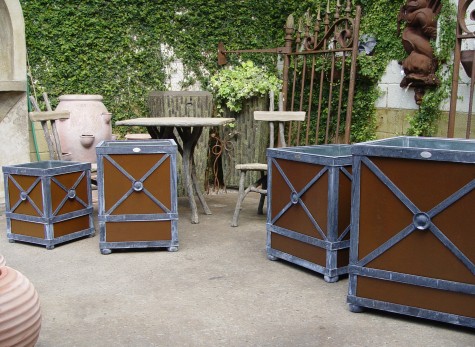
The first variation on the Jackie box-a tall box with a rectangluar panel at the bottom. We also made a series with the panel at the top-but I like this version best. The tall box has a much different feeling than the square. It is no surprise that geometry has visual cache, but shapes have an emotional component as well. Some squares are pleasingly solid and formal-others can be stodgy-funny that. Part of the design process was selecting sizes and proportions that are heartstopping, not sleepy.
I grew up designing objects at the same pace that the Jackie boxes evolved. The brown extira board was certainly durable, but this brown is better on a UPS truck than a planter box. These painted extira board panels were a reference to the shutter color on the house. This was the decision of the client, and her interior designer Lucy Earl-it would not have been my call. But I was surprised how much I liked the end result-the colors of the flowers I have chosen have everything to do with the blue of this box; it was much too strong to ignore.
I did however take a cue from those blue extira board panels. We now paint our boxes for the shop with Porter exterior acrylic paint. It is amazingly durable. This color, a darker blue grey than the steel. The painted extira panel has finally come into its own.
This small Jackie box was made with steel in smaller widths, and a smaller buttom. Scaling a design up or down requires looking at the dimension and thickness of every component. Lots of things seem obvious now that were not so obvious at the beginning.
A beautiful box-I have been after that design a good many years. We are now making the Jackie box with solid steel panels. I think it is a good looking box. Given the currently astronomical price of lead, I think this steel and its finish provides a viable and handsome alternative to that classic material. Judging from the orders we have filled this season for Jackie boxes in a number of sizes and panel options, other people are starting to think so too. I have a pair of Jackie boxes very close to finish-38″ by 38″ by 30″ tall made with 1/4 inch thick steel-to be planted with flowers. I cannot wait.
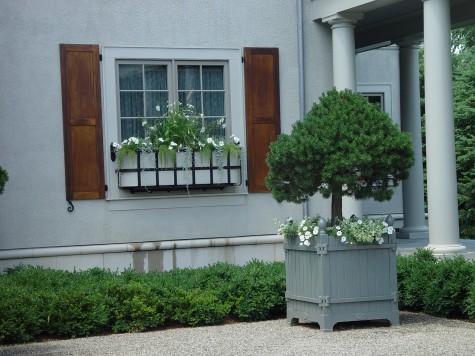
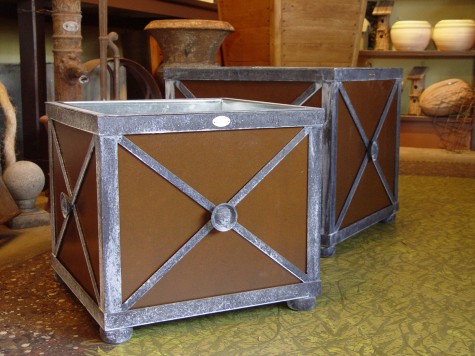
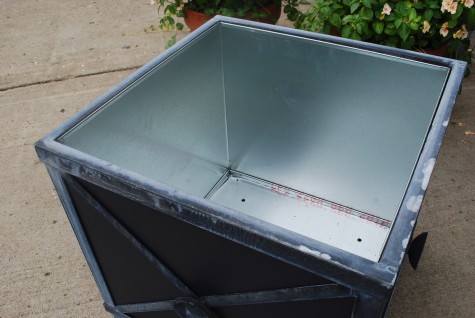
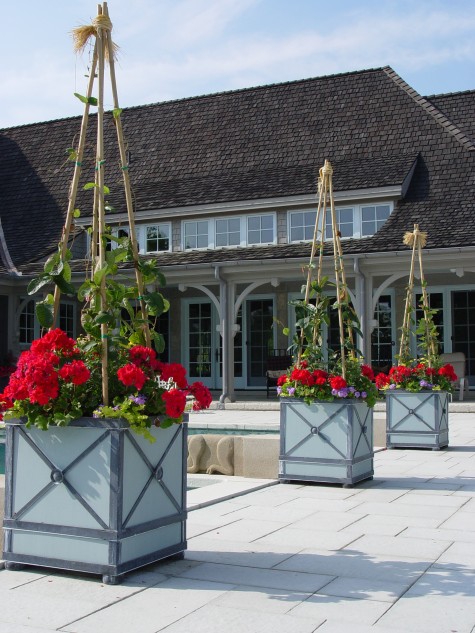
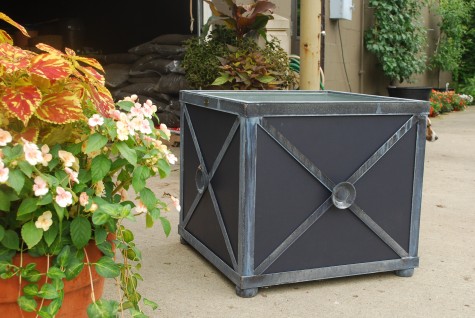
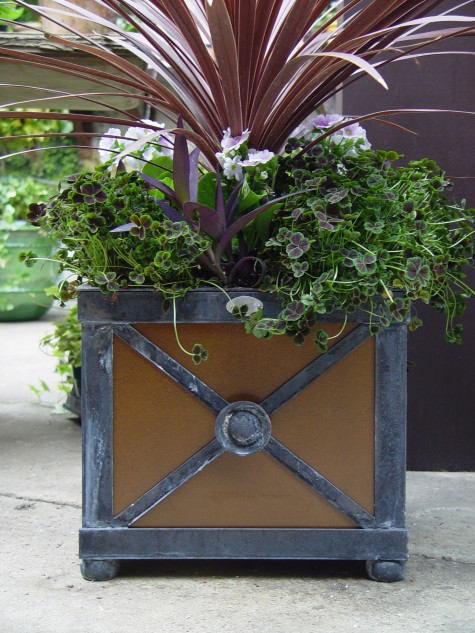
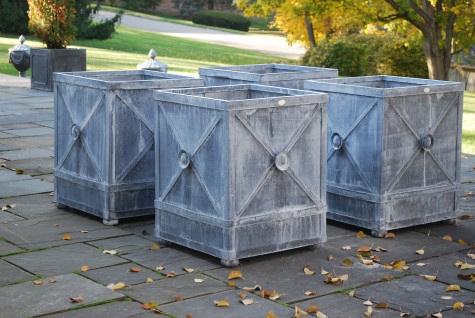
The removable top frame is truly brilliant. Such simple details make the difference between ordinary, mundane, and exceptional.
Although I am not skilled in container gardening, I was struck by the beauty of the Jackie boxes and the effective manner in which you use them. This is brilliant product. Congratulations.
Hi , love your gorgeous boxes…..
How can I g about purchasing and do you have a wholesale catalog?
Dear Kellie, our website is our catalogue-for now. We have a catalogue in the works-let me know if you are interested in getting one when it comes out. Thanks, Deborah